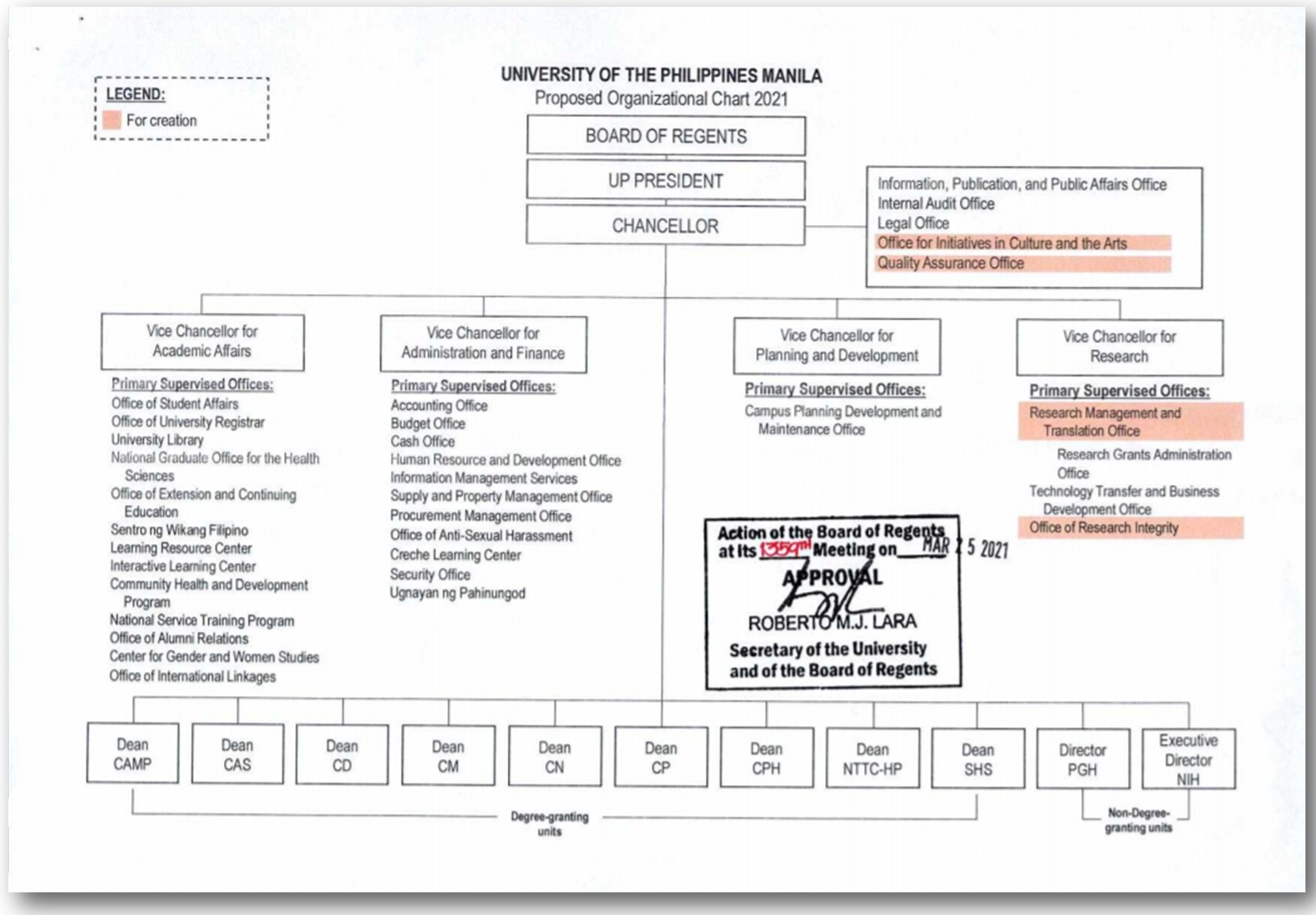
Philosophy
UP Manila dedicates itself to the inviolability and dignity of the human person. It shall ever be responsive to the needs and aspirations of the Filipino People, sensitive to the ideals and values of humanity, the pursuit of truth and freedom through critical thinking, the achievement of social justice, and the institutionalization of the democratic way of life (1988 Reorganization of UPM Handbook).
Mission and Goal
The University of the Philippines Manila shall constantly strive to become an outstanding, dynamic, cohesive and relevant institution of higher learning with the integration of the health sciences units and the College of Arts and Sciences. Thus, it shall provide the highest quality of advanced instruction, professional training, basic and applied research and community service and produce outstanding scholars, practitioners and leaders in the fields of health, the natural sciences, social sciences and humanities (UPM Reorganization Handbook, 1988).
Guiding Principles
The State shall give priority to education, science and technology, arts, culture and sports to foster patriotism and nationalism, accelerate social progress, and promote total human liberation and development [Art. II, Sec. 17, Philippine Constitution, 1987]. Within the framework of the University Charter, UPM is committed to the following principles:
The University and Academic Excellence
- The preservation and enhancement of academic freedom in the context of unhampered discussion and expression of all beliefs, ideologies, cultural traditions and religions.
- Academic excellence and relevance as complementary goals, one serving to advance knowledge, the other harnessing knowledge and skills to solve the nation’s problems.
- The University as a community of scholars where relationships are collegial and egalitarian, the emphasis being on horizontal rather than vertical relations.
- The development of innovative and creative health sciences units with a strong liberal education pervading their curricular programs.
- The exercise of authority in a university in support of academic excellence and academic self-determination.
The University and Governance
- Academic self-determination and democratic participation in decision-making, particularly in policy formulation and implementation and in the selection of University officers.
- Collaborative and coordinative relationships among individuals, groups and sectors within and among academic units, the emphasis being on sharing and synergy.
- Simplicity, efficiency and economy through decentralization, clear delineation of functions and services and streamlining of bureaucratic procedures.
- Development and management of the individual units of UP Manila based on:
- Academic autonomy of the units vis-à-vis central administration except when the higher values of the University demand otherwise.
- Administrative autonomy of individual units in relation to each other without prejudice to collaboration and whenever necessary, integration.
- Just and equitable distribution of resources.
- Periodic review and evaluation of courses of study, programs, projects and services.
The University and Society
- Nationalism, social commitment, sensitivity and responsiveness to human rights, the human person and national issues.
- The University community as a creative instrument for social transformation and nation building while developing itself into a model of a just and humane society.
- The University as a national forum for the critical analysis of national problems and concerns and well-considered proposals for their resolution.
- The judicious exercise of a positive and dynamic influence on national policies and programs.




